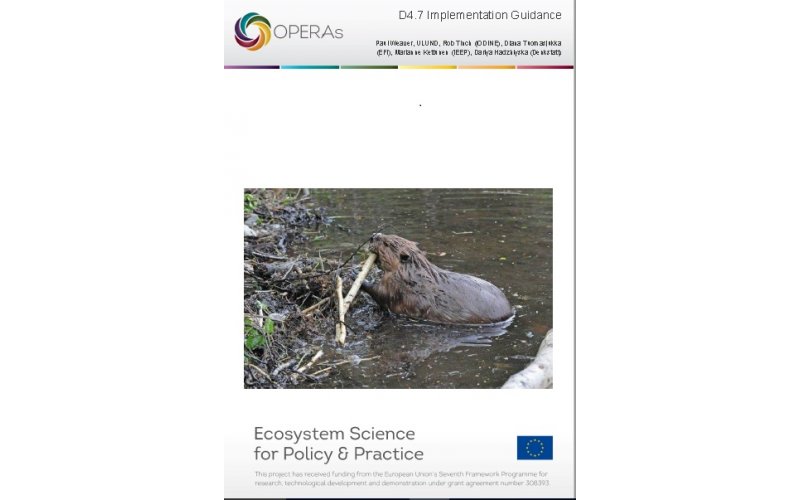The concepts of Ecosystem Services (ES) and Natural Capital (NC) hold a powerful potential to support more sustainable development, improve ecosystem restoration and conservation, provide nature-based solutions and improve the wellbeing of people. Harnessing this potential in support of policy goals and human welfare ultimately depends on the concepts being integrated into information systems and used to support and facilitate decisions, actions and interventions that, directly and indirectly, influence how ecosystems are managed and which bundles of ecosystem services are preferred and delivered.
Policy interest lies in using the ES/NC concepts in support of policy goals and commitments, especially those relating to climate change mitigation and adaptation, habitat and biodiversity conservation, and the development of the ‘green’ economy. The ES/NC concepts have been used for some time already to support some areas of policy, for example climate policy. Their wider use in habitat/biodiversity conservation and enhancement is more recent and an important policy priority linked to the commitment, goal and principle of securing No-Net-Loss and/or Net-Positive-Gain of Biodiversity.
Different approaches and logics can be used to incentivise and drive changes in ecosystem management: market-based approaches (price-based, rights-based and information-based) are increasingly favoured over regulation or as complements to regulation. Changes in governance arrangements to include stakeholders and values that are often under-represented in decision making can also be used to reach more broadly-based decisions.
D4.7 developed guidance for the design and implementation of schemes that can make use of the NC/ES concepts: Payment for Ecosystem Services (PES); Offsetting; Standards, Certificates, Reporting, Labelling and Procurement; Spatial Planning, Regulation and Development Control; and Nature Based Solutions. These represent important modes of implementation that operate under different logics in different application arenas (market creation and support, green business and finance, spatial planning), but which combine synergistically to support the development of Green Infrastructure (GI) and the implementation of GI strategies.

